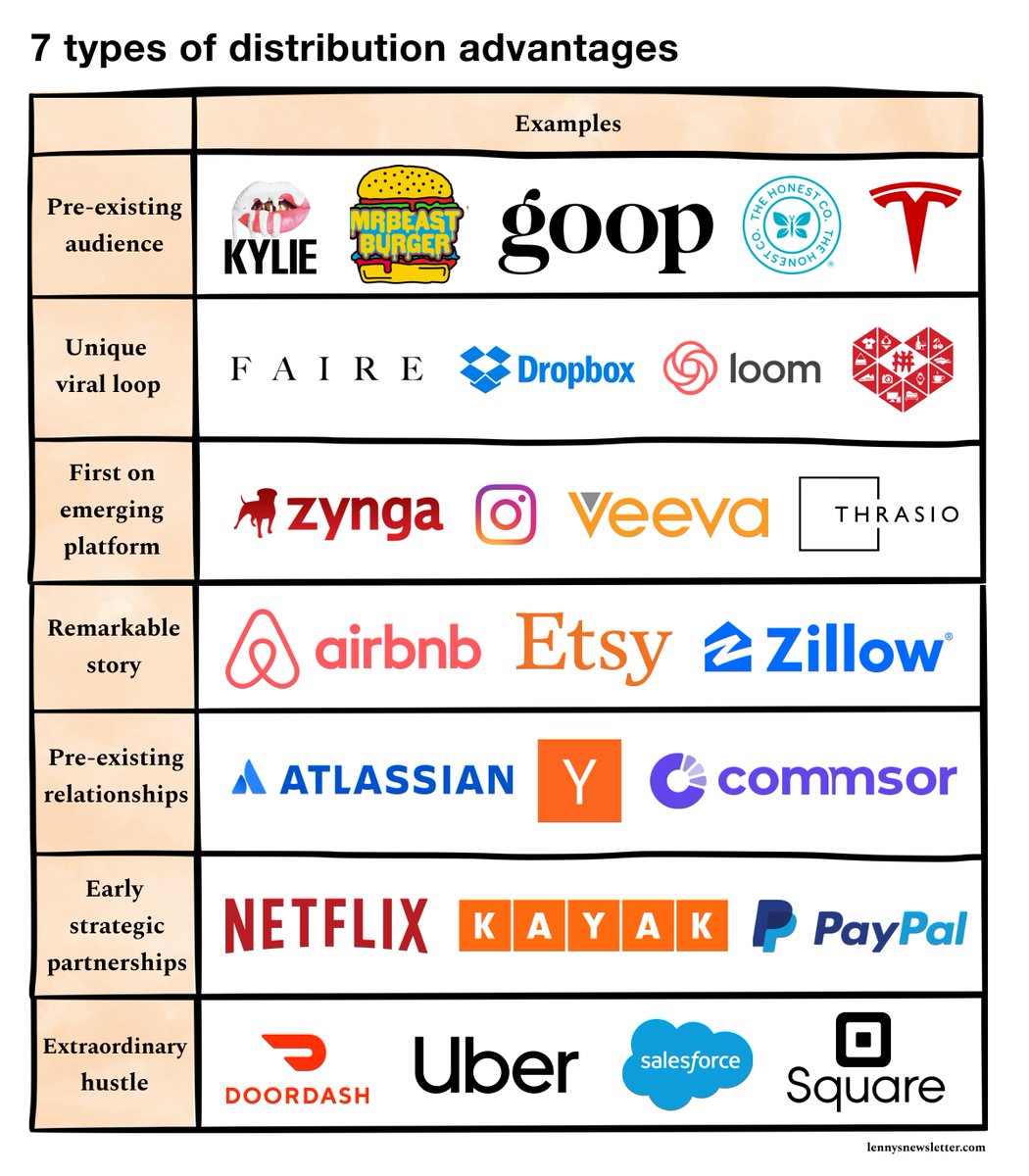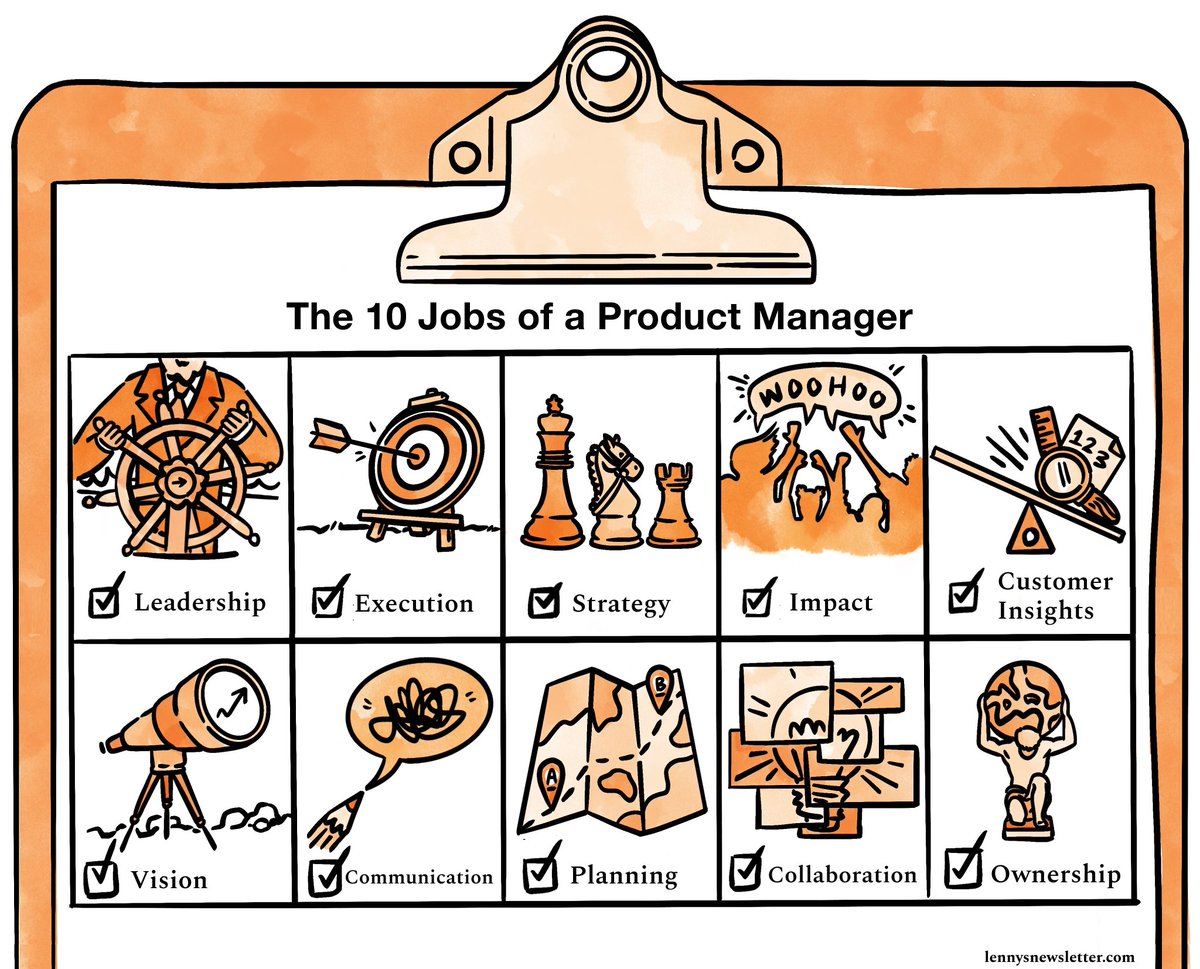
Interesting that all the why now's I've seen fall into 3 buckets:
1. Adoption or advancements in an internet platform (e.g. smartphone, web browser)
2. A change in people’s behavior (e.g. e-commerce, pandemic)
3. Changes in regulation <-- Rare
More in thread 🧵
1. Adoption or advancements in an internet platform (e.g. smartphone, web browser)
2. A change in people’s behavior (e.g. e-commerce, pandemic)
3. Changes in regulation <-- Rare
More in thread 🧵
https://twitter.com/lennysan/status/1415439833846083586
1/ Adoption/advancements in internet platforms:
a. Smartphones: @Instagram, @Snapchat, @WhatsApp
b. Web browsers: @Figma, @Gmail, @Asana
c. Broadband: @Netflix, @Spotify, @Twitch, @YouTube
d. APIs: @Superhuman, @Uber, @lyft
a. Smartphones: @Instagram, @Snapchat, @WhatsApp
b. Web browsers: @Figma, @Gmail, @Asana
c. Broadband: @Netflix, @Spotify, @Twitch, @YouTube
d. APIs: @Superhuman, @Uber, @lyft
2/ A change in people’s behavior:
a. Growth of e-commerce: @Shopify, @PayPal, @amazon, @eBay, @Etsy, @thrasio
b. Growth of online sites: @Stripe, @AWS, @Google
c. Pandemic: @Clubhouse, @Nextdoor, @Hopin, @onepeloton, @Zoom
a. Growth of e-commerce: @Shopify, @PayPal, @amazon, @eBay, @Etsy, @thrasio
b. Growth of online sites: @Stripe, @AWS, @Google
c. Pandemic: @Clubhouse, @Nextdoor, @Hopin, @onepeloton, @Zoom
3/ Changes in regulation:
a. Less regulation: @Eaze, @Uber, @Lyft, @ForCerebral
b. More regulation: @TrustVanta, @security_pal
a. Less regulation: @Eaze, @Uber, @Lyft, @ForCerebral
b. More regulation: @TrustVanta, @security_pal
4/ At the same time, tons of companies don't have a real "why now":
✔️ Airbnb
✔️ Pinterest
✔️ DoorDash
✔️ Gitlab
✔️ Instacart
✔️ Facebook
✔️ Cameo
✔️ SpaceX
✔️ Netflix (the DVD version)
✔️ Airbnb
✔️ DoorDash
✔️ Gitlab
✔️ Instacart
✔️ Cameo
✔️ SpaceX
✔️ Netflix (the DVD version)
• • •
Missing some Tweet in this thread? You can try to
force a refresh









